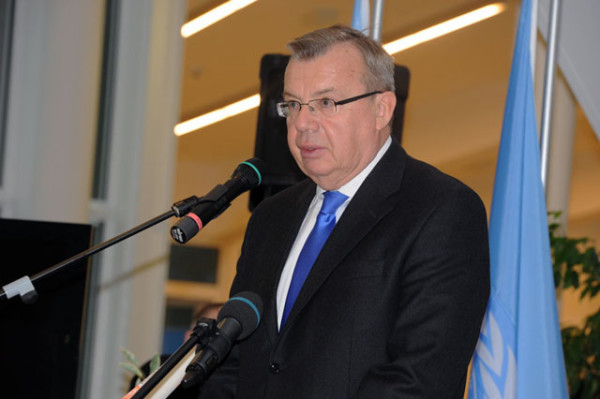Executive Director the United Nations Office on Drugs (UNODC), Yury Fedotov, has welcomed a resolution passed at the UN Security Council on Tuesday. “The resolution offers a powerful recognition by the international community that persons desperately fleeing armed conflict are especially vulnerable to trafficking in persons and to other forms of exploitation,” said the UNODC Chief.

Mr. Fedotov was speaking at a high-level Council debate on trafficking in persons in conflict situations held under the Spanish Presidency. Other speakers at the debate included the UN Secretary-General, Ban Ki-Moon; the Special Representative of the Secretary-General on Sexual Violence in Conflict, Zainab Hawa Bangura; UNODC’s Goodwill Ambassador for the Dignity of Survivors of Human Trafficking, Nadia Murad; and Ameena Saeed Hasan, an active civil society member.
The resolution is the culmination of a series of presidential statements, as well as reports of the Secretary-General and outlines recommendations stressing the importance of the Palermo Convention and its protocols on human trafficking and migrant smuggling, analysis of human trafficking financial flows that fund terrorists, victim identification mechanisms and access to victim protection.
Nadia Murad, in her remarks to the Security Council, asked the international community to “support the UN Voluntary Trust Fund for Victims of Trafficking in Persons, Especially Women and Children which provides critical assistance to the victims.” Mr. Fedotov’s speech underlined the need to deploy “the full arsenal of tools that we have to disrupt organised crime networks and terrorist groups, to fight money laundering and counter terrorist financing”.
On Wednesday, 21 December, UNODC launched its 2016 Global Report on Trafficking in Persons analysing the impact of human trafficking. According to the report, 63,251 victims were detected between 2012 and 2014. The report examines the connections between conflict, migration and trafficking and shows that an increasing number of trafficking victims from conflict-affected countries such as Syria, Iraq and Somalia have been detected in Europe, Asia and the Middle East. Due to the work of UNODC and its many partners, 158 countries have criminalised most forms of human trafficking in their domestic laws under the Palermo Convention and its human trafficking protocol.
Confronting human trafficking was given added momentum in September 2015 when it was included as a specific target in the 2030 Agenda for Sustainable Development where it appears in Goals 5, 8, and 16.
